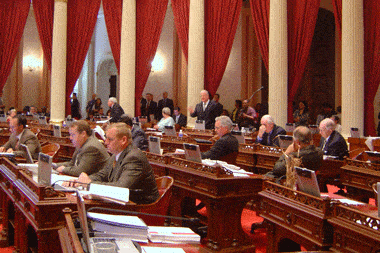
On Wednesday, August 29, the California State Senate approved Assemblymember Richard Bloom’s (D-Santa Monica) measure to reform the process for determining and apportioning regional housing needs. AB 1771 makes several changes to the Regional Housing Needs Allocation process, including requiring the regional distribution to be more data-driven and equitable.
“The RHNA is the foundation for important local land use planning decisions; it sets the goals that cities use to plan ahead and the metrics by which they are held accountable,” said Assemblymember Bloom. “By fixing the RHNA methodology and process, AB 1771 will have a considerable impact on other housing decisions further down the road.”
The Regional Housing Needs Allocation (RHNA) is a process by which the state projects the number of housing units a region needs to plan to accommodate over the next eight years. The local council of governments takes the regional number produced by the RHNA and assigns a share to each jurisdiction within the region by income category, taking into account factors such as job growth and regional constraints to housing development. The RHNA process plays a critical role in setting the stage for housing production and is designed to bring local zoning and planning in alignment with a jurisdiction’s RHNA share and housing need.
Unfortunately, the process is far less data-driven than envisioned and is heavily influenced by local politics. As a result, wealthier, job-rich areas that could accommodate more housing often have lower RHNA allocations. AB 1771 makes a number of changes to the RHNA allocation process to ensure fairness and equity across regions. Specifically, the bill requires distributions to be more data-driven, requires greater transparency in the process, and adds additional state oversight to ensure that the process is consistent with statewide climate change goals. AB 1771 also requires the RHNA to affirmatively further fair and equitable housing and more accurately reflect job growth and market demand for housing.
“Improving the RHNA process is a critical part of ensuring that local jurisdictions accurately plan for the state’s housing needs. By including climate change and equity provisions in the RHNA, AB 1771 ensures that cities not only set reasonable RHNA goals but also do so equitably and in furtherance of California’s environmental goals,” said Bloom.
Nardos Girma


Be the first to comment